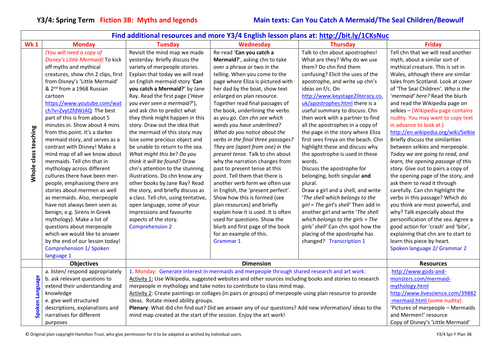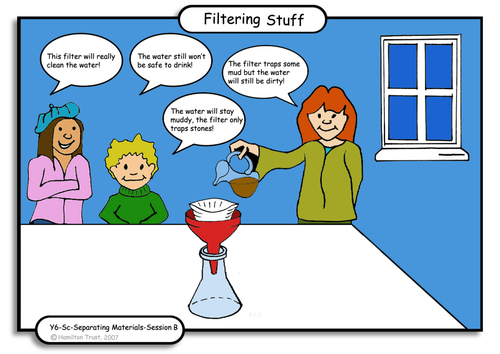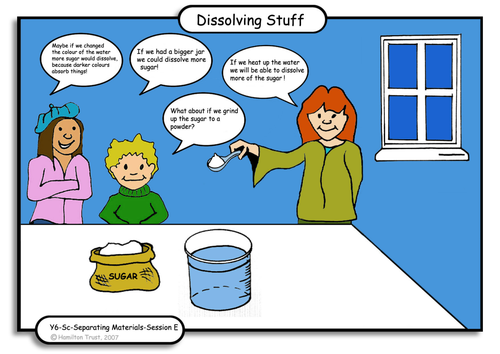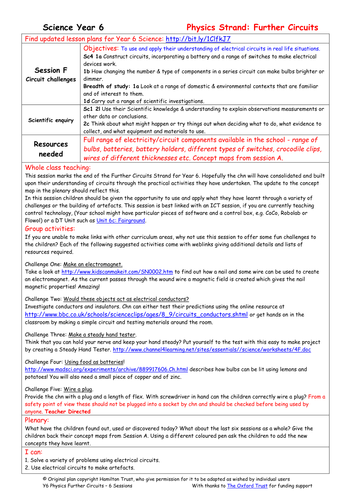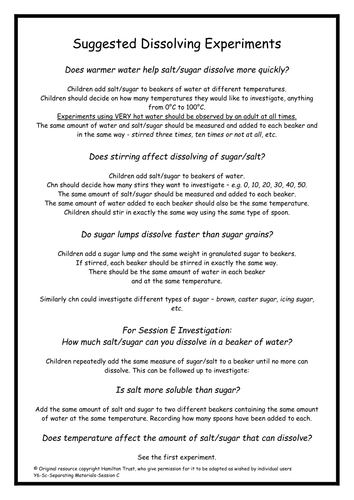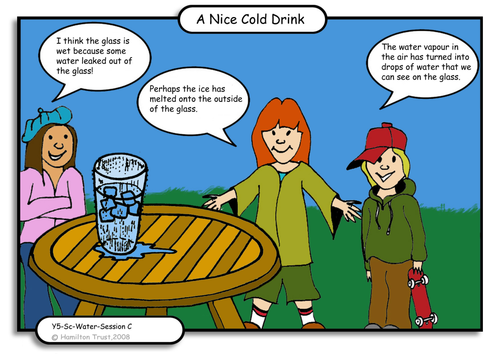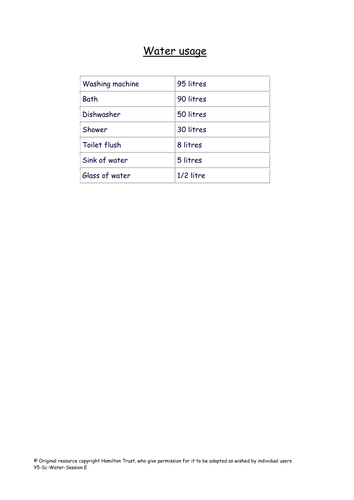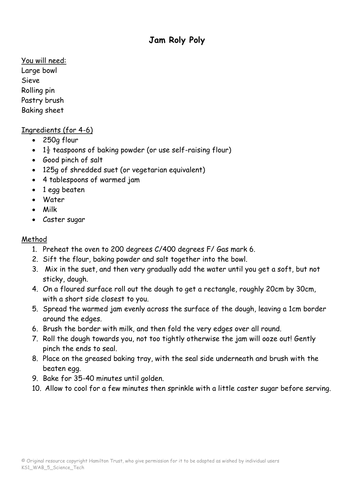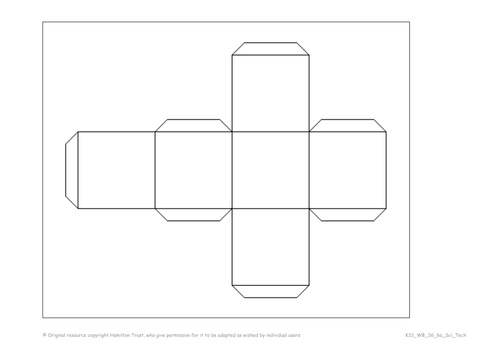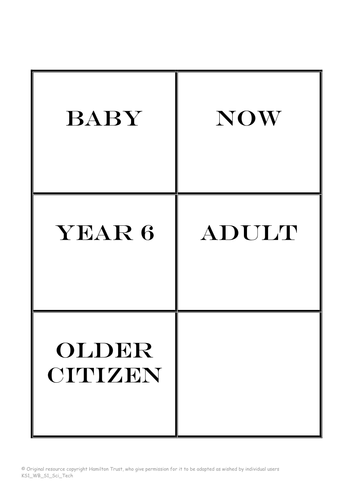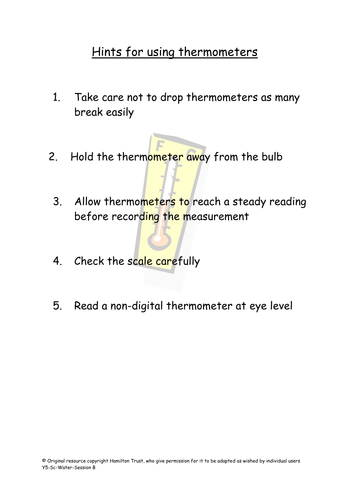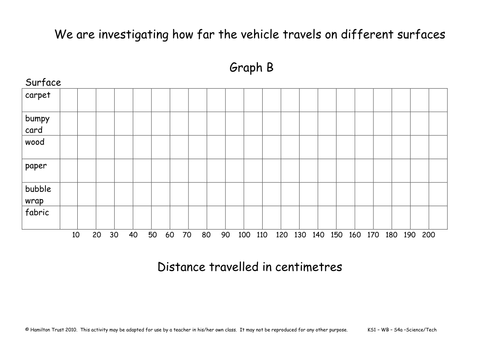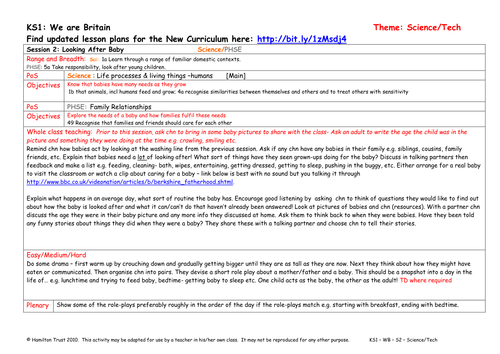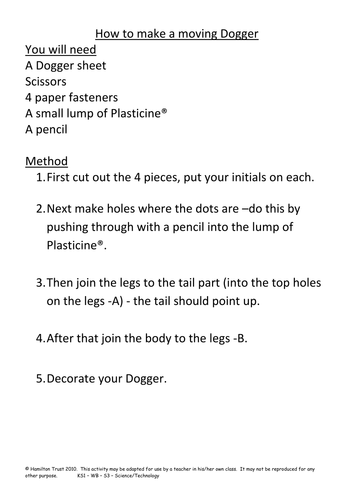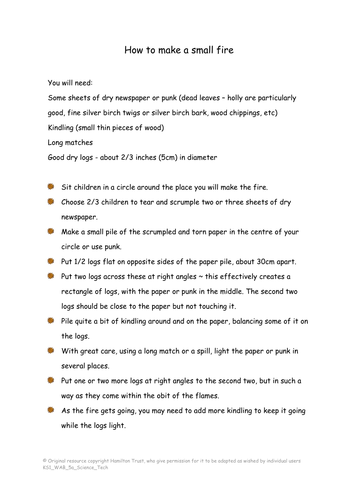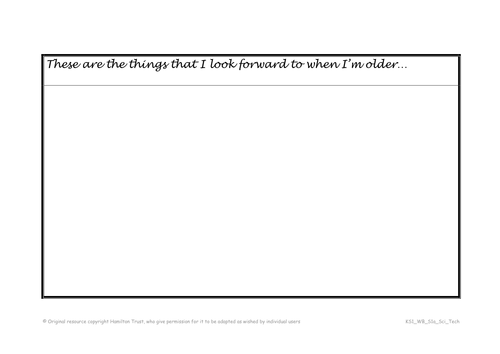
397Uploads
10041k+Views
11644k+Downloads
All resources

Year 3/4 Fiction 3: Myths and Legends
Children explore a variety of myths and enjoy the mythical creatures introduced in Can You Catch A Mermaid?, The Seal Children and Beowulf.
They learn these tales and use them as stimuli for creating their own myths and legends. They use the texts as models to help develop their understanding of detailed description in writing and correct grammar.
Suitable for Year 3 and 4.

Filtering
Things become clearer in this session as children find out that some materials are insoluble creating mixtures when added to water. Children create their own filters to purify water but will it be safe to drink?
Suitable for Y6 pupils.

Investigate dissolving
It’s one lump or two… or even, maybe three or four in this session! Do all soluble materials dissolve in the same way? How much material can you dissolve in water? How can we increase how much material dissolves? Time to find out.
Suitable for Y6 pupils.

Separate solids
In this session children start by separating what they already know from what they want to find out, then start to separate materials using sieves of different sizes and magnets. They find out that these methods have real life applications.
Suitable for Y6 pupils.

Circuit challenges
In this session children apply their knowledge and understanding of circuits in other subject areas or through a variety of practical challenges. Iron nails, lemons and the steadiest of hands are needed in this session!
Suitable for Y6 pupils.

Solutions
This session will create quite a stir as the children investigate the factors which affect how some materials dissolve in water. They raise their own questions, devise fair tests and create line graphs to find answers.
Suitable for Y6 pupils.

Evaporation and condensation
Look at evaporation and condensation of water as reversible changes. Discuss everyday examples & uses of evaporation and condensation. Plan and carry out an investigation into the factors that speed up evaporation.
Suitable for Y5 pupils.

Circuit repairs
Time to call out the experts! Children start the session with some drama before turning their attention to some circuits in need of attention!
Children repair broken circuits and identify repairs needed using circuit diagrams.
Suitable for Y6 pupils.

Circuit revision
In this the first of six sessions the children get some hands on experience and revision of what they already know through a circus of circuit activities.
Can they complete and repair circuits? What dangers does electricity pose?
Suitable for Y6 pupils.

Water in everyday life
Remind children how important water is to all living organisms. Look at how little of the water present on earth is fresh and therefore drinkable.
Children investigate how animals and plants adapt to arid conditions and create posters to encourage us to save water.
Suitable for Y5 pupils.

Symbols
In this session symbols say it all! Children discover the conventions that are used in circuit diagrams before using them to create their own. Can they create working circuits from a diagram? Time to find out!
Suitable for Y6 pupils.

Cooking A 1950's Meal
Children have the opportunity to cook one course of a typical 1950s meal or to set the table. Discuss safety measures before children cook the shepherds’ pie, rice pudding or sponge pudding and custard. Will everyone have a taste of all three dishes?

Make A Box
Moving on from the last session, children explore how boxes are made from nets by taking apart packaging boxes. Then using a pre-prepared net, children make and design their own boxes.

Journey of Life
How have we changed since we were babies? How will we change as we grow up? Children explore these questions by thinking about the different stages of life and recording their thoughts in zig-zag books.

Freezing and boiling
Children practise using thermometers to measure temperature accurately. They find the freezing and boiling points of water and discuss what happens if you add salt to the liquid. Use coloured ice cubes to investigate properties of solids and liquids. Suitable for Y5 pupils.

Explore friction using toy cars
Work with a group to investigate friction and to see what happens to the distance a toy car travels when you change the surface at the bottom of a ramp. With support understand what makes a test fair and how to measure accurately.

Looking after Baby
What’s it like to look after a baby? Children have the opportunity to see a real baby and ask the mother questions about life with a baby! They then use drama to explore family life and the needs of a baby.

Make a Moving Dogger
Practise cutting and joining skills by making a moving Dogger. This session links to English Plan 2 Stories with familiar settings. Learn how to cut well, make a hole in cardboard and construct moving joins using paper fasteners.

Cooking Food on an Open Fire
Immediately after the war many people cooked on open fires using wood, which was cheap or easy to gather free. Cook some potatoes on an open fire outside for children to taste with butter or cheese. If possible allow children to toast some marshmallows with adults.

Who wants to grow up?
Children continue to explore how our bodies and minds change as we get older and how this might affect us in old age. They go on to explore their feelings and frustrations about wanting to be older.

